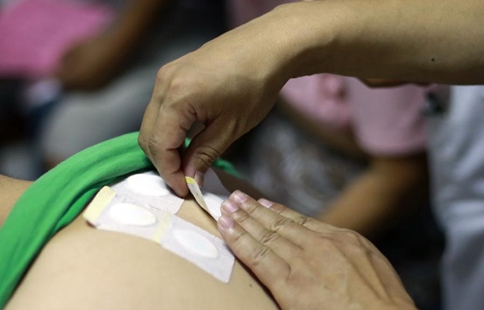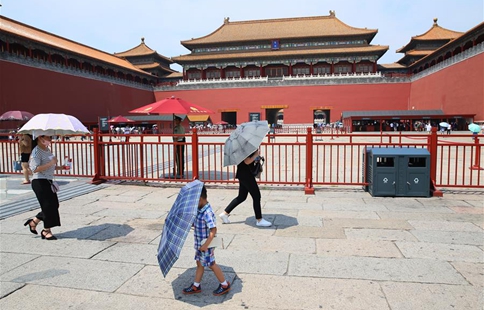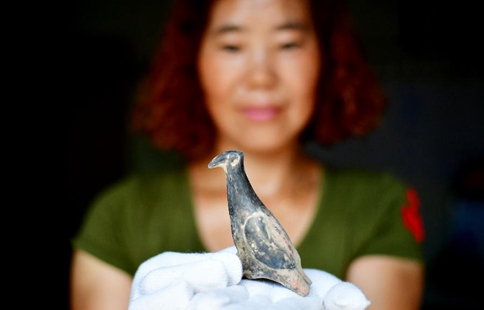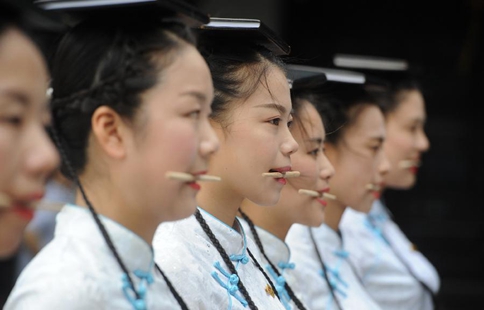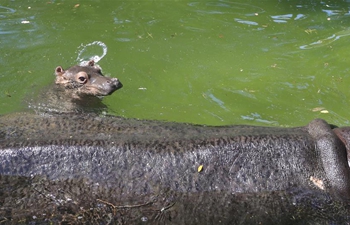by Bedah Mengo
NAIROBI, July 12 (Xinhua) -- Political campaigns have heated up in Kenya, with leaders criss-crossing the country making a number of promises that they vow to implement when they get into power.
President Uhuru Kenyatta and his main challenger Raila Odinga of the National Super Alliance (NASA) have made several promises, but one that stands out and has caught the imagination of Kenyans is the introduction of free education from the kindergarten to the secondary school level.
Education at the primary school level in Kenya is currently free although parents buy books and school uniforms for their children.
On the other hand, at the secondary level, education is subsidized with the government paying some 100 U.S. dollars for the more than two million pupils in close to 40,000 public schools across the country.
The government further pays examination fees of between 5 dollars and 24 dollars for students in primary and secondary schools.
If elected in next month's polls, President Kenyatta has promised to introduce free education from the nursery level to the secondary level starting January 2018.
On the other hand, his main competitor Odinga has vowed to ensure students learn for free from the nursery to secondary level starting this September.
And Odinga does not stop there, he has said parents would not fork out any cent to educate their children as the government would buy school uniform, pens, books and other learning materials for the millions of students in the country.
The promises have excited the electorate from both political divides as it is a win-win situation for the voter whether they elect Kenyatta or Odinga.
"I am happy that for once I will not pay school fees for my four children since the government will take care of their education," Sylvia Wanambisi, a kindergarten teacher in Nairobi, said Tuesday.
Wanambisi noted that she spends up to 1,300 dollars annually on school fees, with the bulk of the money going to her two children who are in secondary school.
"One is in Form Two and the other in Form One. About 1,000 dollars goes on their school fees with the rest going to pocket money, books and school uniform. My husband and I struggle to pay the money and most of it comes from loans. It would be a big relief if this burden is lifted," she said.
Simon Kariuki, a grains trader in Nakuru said he is eager to see his children go to school without him coughing up any cent.
"It would be the best thing to happen to my family as paying school fees is a very big burden. I have two children in public primary school and I pay minimal money for their education. If the government would take care of everything, I would be very happy," he said.
He noted that with education off his burden, he would be able to offer his children a better life and save for their higher education.
"Life has become tougher. It is very expensive to buy food, pay rent and transport especially for people like us who have irregular incomes," said Kariuki, capturing the sentiments of thousands of parents in the East African nation.
Kenya's inflation currently stands at slightly above 10 percent pushed up by high cost of basic commodities including sugar, vegetables, maize flour and milk.
While some parents have welcomed the promises, others are skeptical noting they make kill quality of education at the secondary level.
"My fear is that secondary schools in particular may experience an upsurge of students leading to drop in standards of education as it happened when the government introduced free primary education in 2003. Myself I went to a public primary school but I could not take my child to a government institution because children are barely learning there," said James Ochieng, a parent in Nairobi.
Ochieng noted that when politicians promise to implement the policy, they should also work out on how to improve standards of education by employing more teachers and building classrooms.
Henry Wandera, an economics lecturer in Nairobi, noted that free education is the best gift a government can give its people but quality should not be compromised.
"Right now most middle-income families are not enjoying free primary education because of declined standards in public schools. Instead parents are spending huge sums of money in private schools. To help everyone, standards of education should be upheld especially in secondary schools," Wandera said.
Wandera, however, warned that with the government footing the education bill from collected taxes, some parents may become irresponsible and sire more children thus burdening the country.




